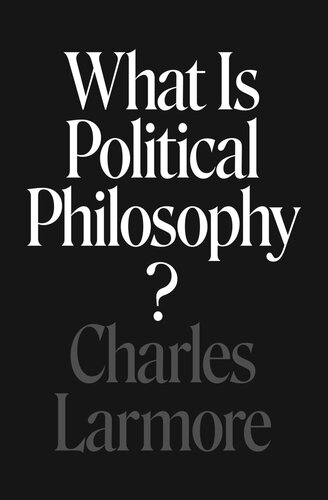

Most ebook files are in PDF format, so you can easily read them using various software such as Foxit Reader or directly on the Google Chrome browser.
Some ebook files are released by publishers in other formats such as .awz, .mobi, .epub, .fb2, etc. You may need to install specific software to read these formats on mobile/PC, such as Calibre.
Please read the tutorial at this link: https://ebookbell.com/faq
We offer FREE conversion to the popular formats you request; however, this may take some time. Therefore, right after payment, please email us, and we will try to provide the service as quickly as possible.
For some exceptional file formats or broken links (if any), please refrain from opening any disputes. Instead, email us first, and we will try to assist within a maximum of 6 hours.
EbookBell Team

4.4
92 reviewsA new understanding of political philosophy from one of its leading thinkers
What is political philosophy? What are its fundamental problems? And how should it be distinguished from moral philosophy? In this book, Charles Larmore redefines the distinctive aims of political philosophy, reformulating in this light the basis of a liberal understanding of politics.
Because political life is characterized by deep and enduring conflict between rival interests and differing moral ideals, the core problems of political philosophy are the regulation of conflict and the conditions under which the members of society may thus be made subject to political authority. We cannot assume that reason will lead to unanimity about these matters because individuals hold different moral convictions. Larmore therefore analyzes the concept of reasonable disagreement and investigates the ways we can adjudicate conflicts between those who reasonably disagree about the nature of the human good and the proper basis of political society. Challenging both the classical liberalism of Locke, Kant, and Mill, and more recent theories of political realism proposed by Bernard Williams and others, Larmore argues for a version of political liberalism that is centered on political legitimacy, rather than on social justice, and that aims to be well suited to our times, rather than universally valid.
Forceful and thorough yet concise, What Is Political Philosophy? proposes a new definition of political philosophy and demonstrates the profound implications of that definition. The result is a compelling and distinctive intervention from a major political philosopher.